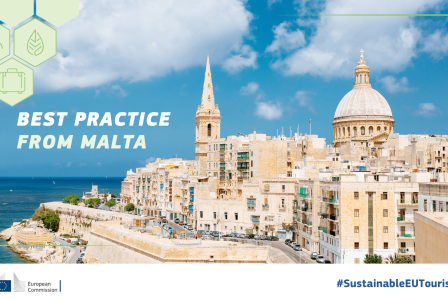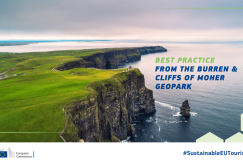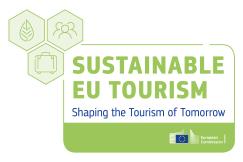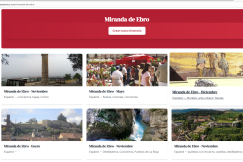Best practices
01 August 2025
Sustainable EU Tourism project - best practice: Malta
Best practices
01 August 2025
Coastal, maritime and inland water tourism
Cultural tourism
Gastronomy tourism
+8 more
Login / create an account to be able to react
-
11

Malta has transitioned from a growth-driven tourism model to one focused on sustainable management and controlled visitor attraction, in response to mounting overtourism pressures and the island’s limited capacity to redistribute tourist flows. By adopting science-based, data-driven strategies and fostering collaboration across multiple sectors, Malta aims to balance economic benefits with social and environmental wellbeing
Sustainable EU Tourism project
Topics
Malta
Destination Management & Marketing Organisations
Local Authorities
National authorities
-
Specific types of tourism
-
-
Coastal, maritime and inland water tourism
-
Cultural tourism
-
Gastronomy tourism
-
Rural tourism
-
-
Transition Pathway Strategic Areas
-
-
Best practices, peer learning and networking
-
Governance of tourism destinations
-
Improving statistics and indicators
-
Sustainable mobility
-
Tools for data on tourism
-
Tourism strategies
-
-
Business activities
-
-
Other
-
Share
Malta has been recognised as a best practice by the Sustainable EU Tourism project for its strategic transition from a growth-driven tourism model to one focused on sustainable management and controlled visitor attraction.
In response to increasing overtourism and limited capacity to redistribute visitor flows, Malta developed its Tourism Strategy 2021–2030 to ensure tourism supports economic growth while safeguarding social and environmental wellbeing.
The strategy includes tools such as the Malta Tourism Observatory, satellite and AI technologies, and the creation of a Tourism Satellite Account to monitor and manage impacts. Enhanced cross-sector stakeholder engagement has improved collaboration, raised environmental awareness, and promoted the adoption of broader sustainability indicators.
Malta’s experience shows that destinations can effectively balance economic, social, and environmental goals by fostering cross-sector collaboration and encouraging tourism actors to broaden their focus beyond marketing.
For more details on the key challenges the destination has faced, and the solutions implemented to address them, please refer to the attached document.
Documents
Comments (0)
Related content
See also
Sustainable EU Tourism - Key challenges and best practices
- Categories
- Coastal, maritime and inland water tourism Cultural tourism Ecotourism +64 more
Platform for creating accessible and multilingual itineraries with voice assistant
- Categories
- Coastal, maritime and inland water tourism Cultural tourism Ecotourism +64 more
Crisis Management and Governance in Tourism project: National Tourism Organisation of a Southern European Country
- Categories
- Coastal, maritime and inland water tourism Cultural tourism Ecotourism +19 more






